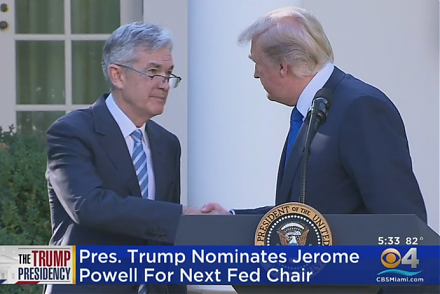

2018-06-09 16:40:00 Sat ET
technology antitrust competition bilateral trade free trade fair trade trade agreement trade surplus trade deficit multilateralism neoliberalism world trade organization regulation public utility current account compliance
The Trump administration introduces new tariffs on $50 billion Chinese goods amid the persistent bilateral trade dispute. The tariffs effectively boost costs and prices for American consumers and enterprises. The delivery company FedEx views U.S. tariffs on Chinese goods as *counterproductive to U.S. economic interests*. China counteracts these penalties by imposing 25% retaliatory tariffs on $50 billion U.S. farm imports such as beef, cotton, rice, soy, and wheat. This recent Sino-U.S. trade conflict may herald a new era of much greater trade protectionism.
The U.S. major stock indices S&P 500, Dow, and NASDAQ experience discernible losses in response to the core complex trifecta of Sino-U.S. trade tension, Federal Reserve second interest rate hike, and energy cost momentum. In addition to this negative U.S. stock market return performance, the greenback exhibits much more volatile near-term gyrations in the foreign exchange market. In a putative trade war, there are winners and losers; whereas, everyone suffers in a major trade conflict. Full-scale and all-out tit-for-tat would become a suboptimal approach to resolving the current bilateral trade imbalance.
It is important for each side to refrain from undertaking any unilateral actions to complicate the status quo. Both sides need to consider a better balance between carrots and sticks in addressing the Sino-U.S. trade dilemma.
If any of our AYA Analytica financial health memos (FHM), blog posts, ebooks, newsletters, and notifications etc, or any other form of online content curation, involves potential copyright concerns, please feel free to contact us at service@ayafintech.network so that we can remove relevant content in response to any such request within a reasonable time frame.
2017-12-09 08:37:00 Saturday ET

Michael Bloomberg, former NYC mayor and media entrepreneur, criticizes that the Trump administration's tax reform is a trillion dollar blunder because i
2019-10-09 16:46:00 Wednesday ET

IMF chief economist Gita Gopinath indicates that competitive currency devaluation may be an ineffective solution to improving export prospects. In the form
2017-10-03 18:39:00 Tuesday ET

President Trump has nominated Jerome Powell to run the Federal Reserve once Fed Chair Janet Yellen's current term expires in February 2018. Trump's
2020-03-12 09:32:00 Thursday ET

Google CEO Eric Schmidt and his co-authors show the innovative corporate culture and mission of the Internet search tech titan. Eric Schmidt, Jonathan Ro
2023-12-05 09:25:00 Tuesday ET

Better corporate ownership governance through worldwide convergence toward Berle-Means stock ownership dispersion Abstract We design a model
2018-01-03 08:38:00 Wednesday ET

President Trump targets Amazon in his call for U.S. Postal Service to charge high delivery prices on the ecommerce giant. Trump picks another fight with an